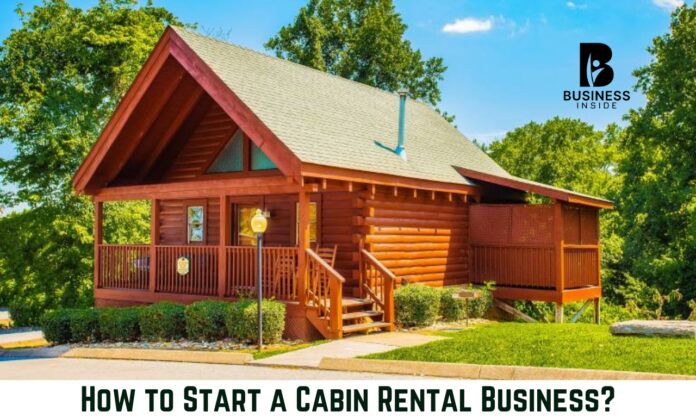Starting a cabin rental business can be a rewarding and profitable venture, especially if you love nature and want to offer others the opportunity to escape to the great outdoors. Cabin rentals are increasingly popular among vacationers looking for unique and serene getaways. However, launching a cabin rental business demands thorough preparation and effective implementation. This guide will help you understand how to start a cabin rental business by addressing key steps and frequently asked questions.
1. Understanding the Cabin Rental Market
Before you start a cabin rental business, it’s essential to understand the demand and trends in your target area. Cabin rentals appeal to those seeking nature retreats, often in locations like mountains, lakesides, or forests. Research the demand for cabin rentals in your region and analyze the competition. Focus on what amenities customers expect, such as rustic or luxury cabins, and consider any unique offerings you can provide.
2. Choosing the Right Location
The location of your cabin rental business is one of the most important factors for its success. Tourists typically seek cabins in peaceful, scenic areas away from the hustle and bustle of city life. When choosing a location, consider proximity to hiking trails, lakes, mountains, or national parks. Popular cabin rental areas include the Smoky Mountains, Adirondacks, and Rocky Mountains. Ensure the land is suitable for building cabins and has necessary utilities like water, electricity, and road access.
3. Designing and Building the Cabins
The design and style of your cabins will influence the type of guests you attract. Some customers prefer rustic, simple cabins, while others might look for luxury cabins with modern amenities. Consider the number of cabins you want to build initially and whether you’ll hire contractors or construct them yourself. Incorporating eco-friendly materials and energy-saving designs can attract environmentally conscious travelers.
4. Obtaining Permits and Licenses
To legally operate a cabin rental business, you’ll need to obtain the necessary permits and licenses. These may include business licenses, zoning permits, health and safety inspections, and short-term rental licenses. Be sure to research local laws and regulations regarding vacation rentals, as they can vary significantly depending on the state or county. In some areas, you may also be required to pay lodging taxes.
5. Setting Up Your Cabin Rental Business
Once your cabins are built and ready for guests, you’ll need to establish the business structure. Establish your business as a legal entity, like an LLC or corporation, to safeguard your personal assets. Next, open a business bank account and keep finances separate from personal accounts. It’s also essential to acquire insurance to protect your cabins, including liability insurance for potential guest injuries and property damage coverage.
6. Marketing Your Cabin Rental Business
Marketing is crucial to attract guests to your cabins. Start by creating a professional website with high-quality photos of your cabins and surrounding landscapes. Utilize online travel platforms such as Airbnb, Vrbo, and Booking.com to list your cabins and reach a broader audience. Additionally, use social media to share posts about your cabins and run targeted ads to potential customers. Encourage guests to leave reviews online, as positive reviews can significantly increase your bookings.
7. Pricing and Managing Bookings
Pricing your cabin rentals competitively is important to ensure profitability. Research the pricing of other cabin rentals in your area and set rates that reflect the size, amenities, and location of your cabins. Think about providing discounts during low seasons to boost reservations. Set up an online booking system that enables guests to conveniently view availability, reserve their stay, and complete payments.
8. Managing Maintenance and Guest Relations
Keeping your cabins well-maintained is crucial for ensuring guest satisfaction and securing repeat bookings. Regular cleaning, repairs, and maintenance checks are necessary to keep your cabins in top condition. Consider hiring cleaning staff and maintenance workers if you plan to manage multiple cabins. Additionally, offering excellent customer service—such as quick responses to inquiries, a smooth check-in process, and addressing guest issues—can enhance the guest experience.
9. Scaling Your Cabin Rental Business
As your cabin rental business becomes successful, you may consider expanding by building more cabins or purchasing additional properties in different locations. However, scaling requires careful planning, including managing finances, hiring more staff, and investing in more marketing efforts. If demand is high, offering special experiences, such as guided tours or exclusive packages, can increase your revenue streams.
FAQ’S:
When should I expand my cabin rental business?
You should expand your cabin rental business when there is consistent demand, and you have the financial stability and resources to grow.
What type of location is best for a cabin rental business?
A scenic, remote location near tourist attractions such as national parks, lakes, or hiking trails is ideal for a cabin rental business.
How many cabins should I start with?
Start with a few cabins to test demand and ensure manageable operations. You can scale up as your business develops
Do I need a special license for cabin rentals?
Yes, depending on your location, you may need business licenses, short-term rental permits, and zoning approval.
What types of insurance are necessary for a cabin rental business?
Liability insurance, property insurance, and business interruption insurance are recommended to cover potential risks.
How do I attract guests to my cabin rental business?
Listing your cabins on platforms like Airbnb and Vrbo, using social media marketing, and maintaining a professional website are key strategies to attract guests.
How should I price my cabins?
Price your cabins based on market rates in your area, the quality of the cabins, and the season. Providing promotional discounts can assist in attracting reservations during less busy periods.
How do I manage cabin maintenance and guest services?
Hire staff or contractors for cleaning and repairs, and ensure prompt communication with guests for any issues or concerns during their stay.
Conclusion
Starting a cabin rental business requires strategic planning, from selecting a great location and building cabins to obtaining permits, marketing, and managing operations. By offering a unique and well-managed cabin experience, you can attract guests looking for memorable getaways and build a successful business in the vacation rental industry. With attention to guest satisfaction and operational efficiency, your cabin rental business can thrive and grow over time.

